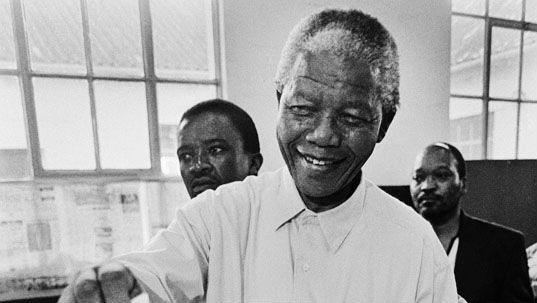How the 3 stages of the “redemption arc” can enrich our daily work lives

- Redemption is a familiar concept in Christian theology but versions of the idea can be found in almost all religions that ever existed.
- The secular philosopher Richard Rorty offered a different version of redemption that even the non-religious can relate to.
- Here we look at three ways we can apply the redemption arc to our work-lives.
Picture your best friend — the one who’s in the pictures in your house. This is the friend who was there at your wedding, your 18th birthday, or when your dad died. Most people have a good friend like this. Imagine that this friend cheats on their spouse. Or, perhaps worse, let’s say they’re found guilty of murder. They’ve done something horrible or criminal. Are they your friend still? Do you disown and discard them? Have you ever, in your mind, decided how far your friendship with that person will stretch?
Everyone makes mistakes. Making mistakes is an important part of learning and growing. Some mistakes are, of course, more serious than others. When someone does something wrong, we each have to decide if that misdeed qualifies for redemption. If so, we must determine the necessary criteria for granting redemption.
But what does redemption actually mean, and how can we apply it to our everyday work-lives?
Standing up after falling down
Redemption is a concept loaded with religious symbolism. It has roots in the idea that some disgraceful element in our nature can be overcome, and we can enter a state of sacredness or transcendence. It forms a keystone to Catholic theology and is all about forgiveness by the grace of God. Humans have “fallen” and need to be picked up again with the help of a divine hand. But if we treat redemption as a kind of purification and union with something bigger, then every world religion that ever existed has some kind of redemption narrative.
If we adopt this wider interpretation of redemption, then it’s even possible to divorce it from religion altogether. This is exactly what the philosopher Richard Rorty does in his book Philosophy and Social Hope. Rorty is, elsewhere, pretty scathing of religion, so his intellectual interest in redemption stands out as a curious anomaly. For Rorty, redemption is the act of transforming a lesser version of ourselves into a better version with the help of an outside force. It’s a kind of “self-completing” journey where we grow by both being virtuous and participating in something wider and bigger than us. And to do so, we need help. In certain relationships, we are lifted up. We are buoyed and inspired. Some people — people other than ourselves — draw out “overpowering hope, or faith, or love” in us.

Rorty’s version of redemption stands out against certain religious strands in that it is explicitly set against predestination or essentialism. No one is fallen forever. No one is beyond redemption. The only criterion for redemption is a willingness to become a better version of yourself. For Rorty, the whole point of redemption is that we can change. Your best friend, who is a murderer, qualifies for redemption when they recognize their shortcomings (criminally horrific shortcomings) and seek to become a better version of themselves.
Redemption is the story arc that begins with the fallen and ends with enlightenment and involves a great many helpers along the way.
Takeaways from the 3 stages of redemption
Redemption can be divided into three stages, and each stage offers valuable advice on how we approach our business lives.
The fallen. We all need to recognize that we are not the finished deal. We are not perfect. This doesn’t mean walking around the office with a cat-tail whip, bemoaning the fall of Eden. It simply means recognizing that there are things we are not good at. If someone asks you to do something, especially if it’s someone with authority and you are relatively new, it’s all too easy to say “sure” when you actually have no idea what to do. The redemption arc begins with the fallen. Growth begins with recognizing what you need to improve.
The humility. In the theology of redemption, it’s not enough to know you’re incomplete. If we’re to get bigger and better, then we need to hang up our pride and ask for help. Christians turn to the grace of God. Muslims pray to Allah. Buddhists commit to becoming bodhisattvas. Likewise, in the workplace, we sometimes need to call in the cavalry. Over on Big Think+, Jonah Berger, professor of marketing at the Wharton School of Business and author of Magic Words, talks us through the biggest obstacles to those who seek advice — and how to overcome them.
The allies. The difference between redemption and simply a “growth mindset” is that it necessarily requires others and often some kind of profound, emotionally resonant experience. These are hard to come by in an office setting — they’re usually the reserve of love — but the nearest that we might come is in the “mentor.” Study after study has shown that mentoring is good for both the mentor and the protégé. It provides greater purpose, establishes healthier work-life balances, and makes you much better at your job. If we know mentors are important, then this means two things: companies need to take mentorship programs seriously, and employees should make sure they are both happy with, and fully commit to, any mentor they have.





